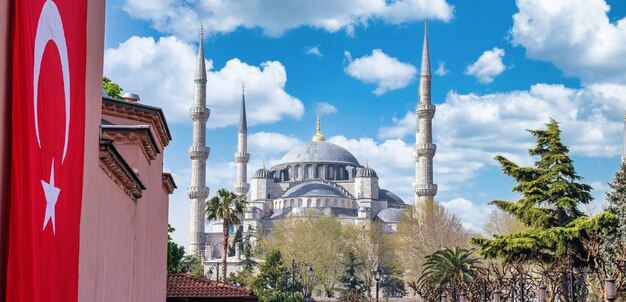
Witness The Beauty of Turkiye
Turkey is a treasure trove of historical, cultural, and natural wonders. Here’s a guide to some of the best tourism sites in Turkey, each with its unique features, specialties, and attractions:
1. Istanbul
Details:
The cultural and economic heart of Turkey, Istanbul straddles Europe and Asia across the Bosphorus Strait. It’s famed for its rich history, stunning architecture, and vibrant bazaars.
- Specialty: Hagia Sophia (an architectural marvel with a history as a church, mosque, and museum), Topkapi Palace (the opulent residence of Ottoman sultans), and Blue Mosque (with its iconic blue tiles).
- Special Dishes: Try Kebab, Baklava, and Simit (Turkish bagel).
- Natural Produce: Istanbul is known for its vibrant markets with fresh fruits, vegetables, and spices.
- Festivals: Istanbul Music Festival, Istanbul Biennial.
2. Cappadocia
Details:
Renowned for its surreal landscape of fairy chimneys, cave dwellings, and hot air balloon rides. This region offers a unique glimpse into ancient cave civilizations.
- Specialty: Göreme Open-Air Museum (ancient cave churches), Underground Cities (like Derinkuyu), and stunning hot air balloon rides over the landscape.
- Special Dishes: Testi Kebabı (meat cooked in a clay pot) and Pottery Kebab.
- Natural Produce: Known for local wines and unique pottery.
- Festivals: Cappadocia Hot Air Balloon Festival.
3. Pamukkale
Details:
Famous for its white travertine terraces formed by mineral-rich hot springs. The site also includes the ancient city of Hierapolis.
- Specialty: Hierapolis (ancient Roman spa city), Cotton Castle (travertine terraces), and natural thermal pools.
- Special Dishes: Çörek (Turkish bread) and local wines.
- Natural Produce: Mineral-rich waters and healing mud.
- Festivals: Pamukkale Thermal Springs Festival.
4. Ephesus
Details:
An ancient Greek city on the west coast, renowned for its well-preserved ruins, including the Temple of Artemis and the Library of Celsus.
- Specialty: Ephesus Ruins (including the grand theatre and the Celsus Library), and Temple of Artemis (one of the Seven Wonders of the Ancient World).
- Special Dishes: Traditional Aegean cuisine, including Seafood Dishes and Dolma (stuffed grape leaves).
- Natural Produce: Olives and olive oil.
- Festivals: Ephesus Theatre Festival.
5. Antalya
Details:
A beautiful coastal city on the Mediterranean, known for its stunning beaches, luxury resorts, and ancient ruins.
- Specialty: Old Town (Kaleiçi) (with its Ottoman-era architecture), Düden Waterfalls, and Antalya Archaeological Museum.
- Special Dishes: Piyaz (bean salad), and Antalya Kebab.
- Natural Produce: Citrus fruits, especially oranges and lemons.
- Festivals: Antalya Golden Orange Film Festival.
6. Bodrum
Details:
A lively port town on the Aegean coast, known for its vibrant nightlife, beautiful beaches, and historical sites like the Mausoleum of Halicarnassus.
- Specialty: Bodrum Castle, Mausoleum of Halicarnassus (one of the Seven Wonders), and Bodrum Marina.
- Special Dishes: Bodrum Fish dishes and Çılbır (poached eggs with yogurt).
- Natural Produce: Local wines and olives.
- Festivals: Bodrum Ballet Festival, Bodrum Music Festival.
7. Mount Ararat
Details:
The highest peak in Turkey, often associated with the Biblical story of Noah’s Ark. It’s a destination for trekking and mountaineering.
- Specialty: Mount Ararat (a challenging climb for adventure seekers).
- Special Dishes: Local Kurdish cuisine, including Kebabs and Lamb Dishes.
- Natural Produce: Fresh mountain herbs and local honey.
- Festivals: Ararat Trekking Festival (celebrating climbing achievements and local culture).
8. Trabzon
Details:
Located on the Black Sea coast, Trabzon is known for its lush green landscapes, historical sites, and unique local culture.
- Specialty: Sumela Monastery (a historic Greek Orthodox monastery), and Uzungöl Lake.
- Special Dishes: Akçaabat Meatballs and Hamsi (anchovies).
- Natural Produce: Black Sea tea and hazelnuts.
- Festivals: Trabzon International Mountain Marathon.
9. Konya
Details:
Known for its role in the Seljuk Empire and as the home of the Whirling Dervishes. It’s a city of deep spiritual significance.
- Specialty: Mevlana Museum (dedicated to Rumi), and Selimiye Mosque.
- Special Dishes: Etli Ekmek (a type of flatbread with meat) and Börek.
- Natural Produce: Known for traditional sweets and local breads.
- Festivals: Konya Mystic Music Festival.
10. Mardin
Details:
A city known for its unique architecture, with old stone houses and narrow streets that offer a glimpse into its rich history and culture.
- Specialty: Mardin Old City (with its beautiful stone buildings), and Deyrulzafaran Monastery.
- Special Dishes: Mardin Kebab and Leblebi (roasted chickpeas).
- Natural Produce: Local spices and herbs.
- Festivals: Mardin Cultural Festival.
Each of these destinations offers a unique experience, reflecting Turkey’s diverse heritage and natural beauty. Whether you’re exploring ancient ruins, enjoying vibrant local festivals, or savoring regional cuisine, Turkey has something special for every traveler.
Visit Plan
Planning a comprehensive trip to Turkey requires considering distances, travel times, accommodation options, and the best sequence to visit these incredible destinations. Here’s a day-by-day itinerary that covers major tourist sites, along with travel details and accommodation options:
Day 1: Arrival in Istanbul
Arrival in Istanbul
Accommodation:
- Elite: Four Seasons Hotel Istanbul at Sultanahmet
- Medium: Sultanahmet Palace Hotel
- Economy: Cheers Hostel
Day 2: Explore Istanbul
Morning: Visit Hagia Sophia, Topkapi Palace, and the Blue Mosque.
Afternoon: Explore the Grand Bazaar and Spice Bazaar.
Evening: Enjoy dinner in a local restaurant and a Bosphorus cruise.
Day 3: Istanbul to Cappadocia
Travel:
Fly from Istanbul to Kayseri or Nevşehir (1.5 hours flight, 1-hour drive from Kayseri/Nevşehir to Cappadocia)
Accommodation:
- Elite: Argos in Cappadocia
- Medium: Sultan Cave Suites
- Economy: Kose Pension
Day 4: Explore Cappadocia
Morning: Hot air balloon ride over the fairy chimneys.
Afternoon: Visit Göreme Open-Air Museum and explore underground cities like Derinkuyu or Kaymakli.
Evening: Experience a traditional Turkish night with local cuisine.
Day 5: Cappadocia to Pamukkale
Travel:
Fly from Kayseri/Nevşehir to Denizli (1.5 hours flight, 1-hour drive to Pamukkale)
Accommodation:
- Elite: Pamukkale Hierapolis Hotel
- Medium: Colossae Thermal Hotel
- Economy: Melrose House Hotel
Day 6: Explore Pamukkale
Morning:
Explore the travertine terraces and Hierapolis Ancient City.
Afternoon: Relax in the thermal pools.
Evening: Dinner in a local restaurant.
Day 7: Pamukkale to Ephesus
Travel:
Drive from Pamukkale to Selçuk (3 hours)
Accommodation:
- Elite: Aegean Park Hotel
- Medium: Cella Boutique Hotel & Spa
- Economy: Ephesus Lodge
Day 8: Explore Ephesus
Morning: Visit the ancient ruins of Ephesus, including the Library of Celsus and the Great Theatre.
Afternoon: Explore the Temple of Artemis and the House of the Virgin Mary.
Evening: Relax in Selçuk or nearby Kusadasi.
Day 9: Ephesus to Antalya
Travel:
Fly from Izmir (Adnan Menderes Airport) to Antalya (1 hour 15 minutes flight)
Accommodation:
- Elite: Mardan Palace Hotel
- Medium: Akra Hotel
- Economy: Antalya Hostel & Hostel
Day 10: Explore Antalya
Morning: Visit the Old Town (Kaleiçi), Hadrian’s Gate, and the Antalya Museum.
Afternoon: Relax on Konyaaltı Beach or Lara Beach.
Evening: Explore the local markets or enjoy dinner in a seaside restaurant.
Day 11: Antalya to Bodrum
Travel:
Drive from Antalya to Bodrum (4.5 hours)
Accommodation:
- Elite: Mandarin Oriental, Bodrum
- Medium: El Vino Hotel & Suites
- Economy: Bodrum Central Hostel
Day 12: Explore Bodrum
Morning: Visit Bodrum Castle and the Museum of Underwater Archaeology.
Afternoon: Explore the Mausoleum of Halicarnassus and relax at Bodrum Marina.
Evening: Enjoy Bodrum’s vibrant nightlife.
Day 13: Bodrum to Istanbul
Travel:
Fly from Bodrum to Istanbul (1 hour flight)
Accommodation:
- Elite: Four Seasons Hotel Istanbul at Sultanahmet (if returning)
- Medium: The Marmara Taksim
- Economy: Cheers Hostel (if returning)
Day 14: Departure from Istanbul
Travel Tips
- Domestic Flights: Use Turkish Airlines, Pegasus Airlines, or AnadoluJet for domestic flights.
- Transportation: In cities, use public transportation or taxis. For intercity travel, flights are the quickest, while buses or car rentals are alternatives.
General Notes
- Travel Insurance: Ensure you have comprehensive travel insurance.
- Currency: Turkish Lira (TRY) is the local currency.
- Language: Turkish is the primary language, but English is commonly spoken in tourist areas.
This itinerary offers a well-rounded experience of Turkey’s diverse attractions, from historical sites to natural wonders, with accommodation options catering to different budgets.
Favorite Tourism Season for Turkey
Spring (April to June):
- Why: Spring is considered the best time to visit Turkey due to mild temperatures and blooming landscapes. Tourist spots are less crowded compared to summer, making it ideal for sightseeing and outdoor activities.
- Weather: Generally pleasant with temperatures ranging from 15°C to 25°C (59°F to 77°F). It’s a great time for exploring cities like Istanbul, Cappadocia, and coastal areas.
- Activities: Ideal for hiking, historical site tours, and experiencing local festivals. The weather is perfect for outdoor activities like hot air balloon rides in Cappadocia and visiting ancient ruins.
Autumn (September to November):
- Why: Autumn offers similar benefits to spring with comfortable temperatures and fewer crowds. The landscape is often beautifully colored with fall foliage, especially in regions like Cappadocia and the Black Sea coast.
- Weather: Temperatures range from 15°C to 25°C (59°F to 77°F), with pleasant weather for exploring and outdoor activities.
- Activities: Great for visiting the coast, enjoying the wine harvest season, and exploring cities without the summer tourist rush. It’s also an excellent time for cultural festivals.
Packing Details for Turkey
1. Clothing:
Spring:
- Light Jacket or Sweater: For cooler evenings and mornings.
- Comfortable Layers: T-shirts, long-sleeve shirts, and trousers.
- Comfortable Walking Shoes: For exploring historical sites and cities.
- Umbrella or Rain Jacket: Light rain showers are common.
Autumn:
- Layered Clothing: Light sweaters, long-sleeve shirts, and a medium-weight jacket.
- Comfortable Shoes: For walking and exploring.
- Warm Hat and Gloves: Especially for early autumn or in higher altitudes like Cappadocia.
- Rain Gear: An umbrella or waterproof jacket in case of rain.
2. Essential Items:
- Travel Documents: Passport, visa, and travel insurance.
- Medication: Any personal medications and a small first-aid kit.
- Adapters and Chargers: Turkey uses Type C and F plugs, with a standard voltage of 230V.
- Sunscreen and Sunglasses: Even in spring and autumn, sun protection is important.
- Reusable Water Bottle: Staying hydrated is key, especially during active sightseeing days.
- Guidebook or Maps: Helpful for navigating and learning more about the destinations.
3. Optional Items:
- Swimwear: If you plan to visit the Mediterranean or Aegean coasts, the sea might still be warm in early autumn.
- Camera: For capturing the beautiful landscapes and historical sites.
- Binoculars: Useful for scenic views, especially in regions like Cappadocia.
4. Local Customs and Practical Tips:
- Respectful Attire: When visiting mosques and other religious sites, ensure that your clothing covers shoulders and knees. A scarf might be necessary for women in some places.
- Cash and Cards: While credit and debit cards are widely accepted, carrying some cash (Turkish Lira) is useful for small purchases and in less touristy areas.
By planning according to the season and packing appropriately, you’ll be well-prepared to enjoy Turkey’s diverse attractions and beautiful landscapes.




